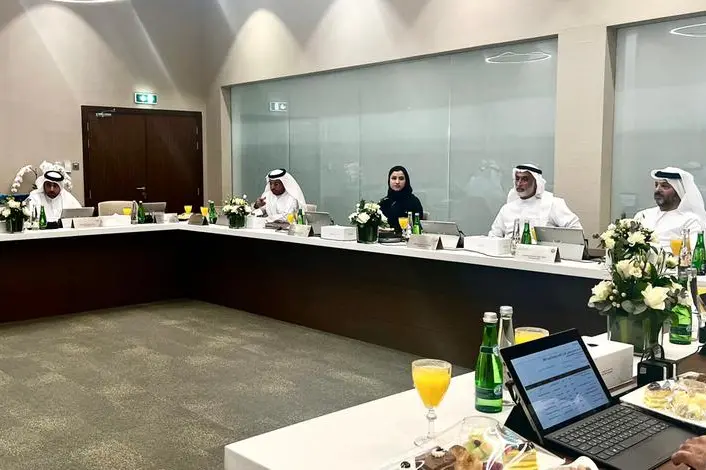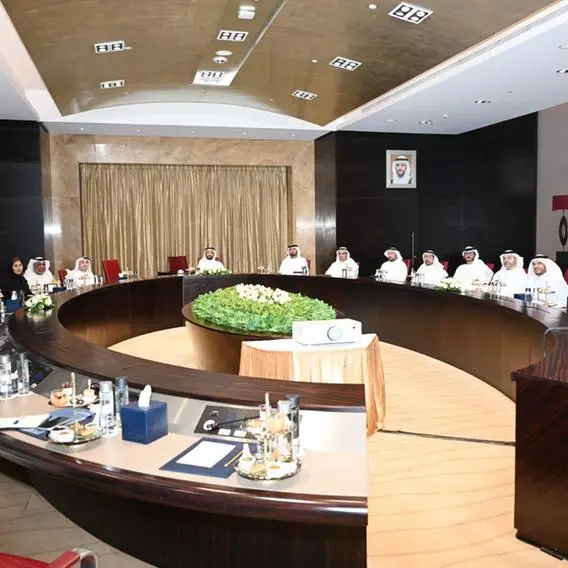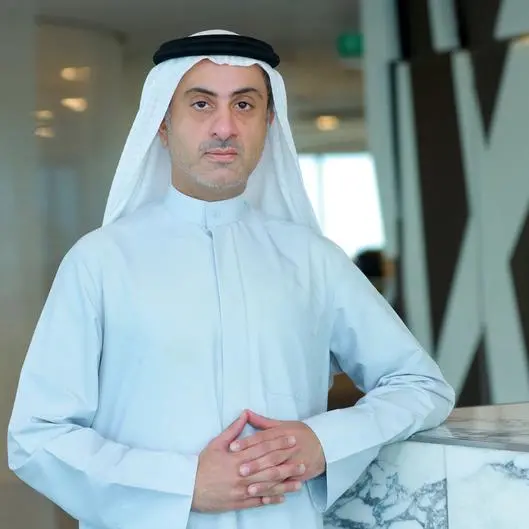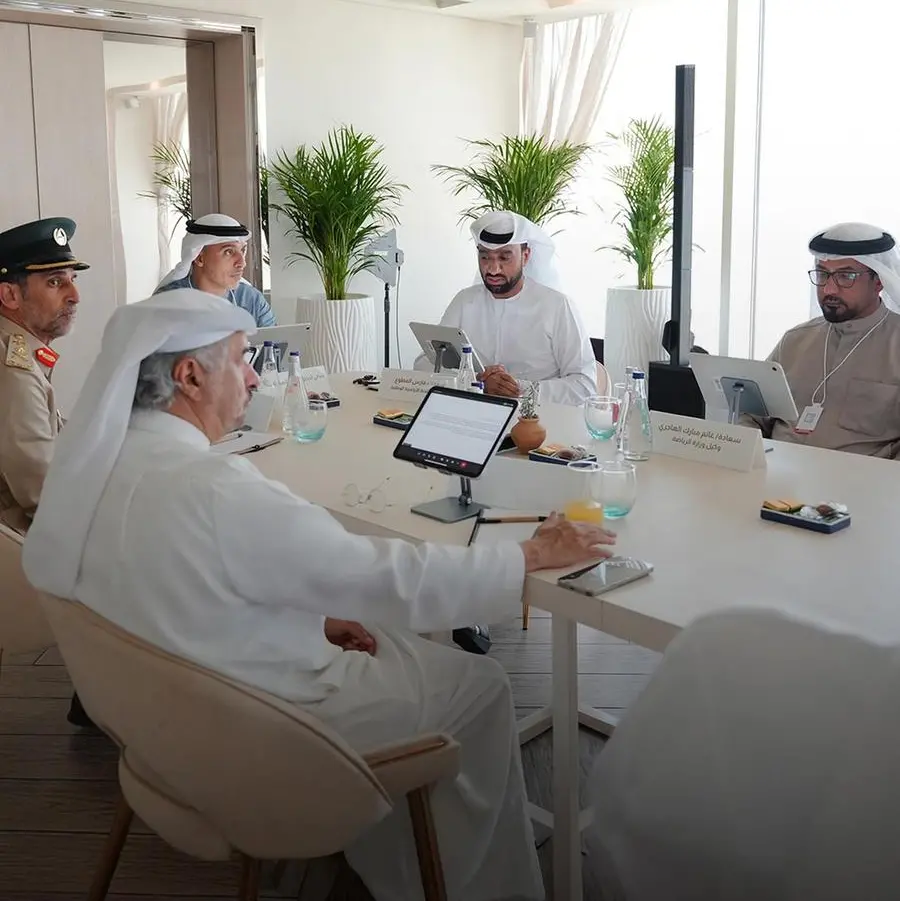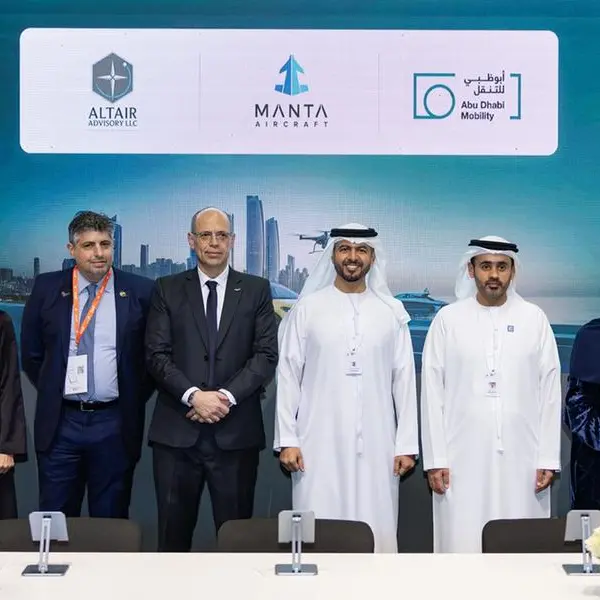PHOTO
Abu Dhabi, UAE: During its first meeting of 2023, the UAE Space Agency Board of Directors discussed the rapid development of the space sector in the UAE, evident through data collected by the Space Economic Survey 2022. The board members also reviewed plans and visions to cement the UAE's position as a global player in the space sector.
The board members were briefed on the latest milestones achieved by the Emirates Mars Mission 'Hope Probe' and its role in developing the capabilities of the highly qualified science team in data management. The board members were also introduced to the research submitted by the team and the 1.7 Terabytes of data released to the global scientific community, including the first clear visualization of Mars' atmosphere during different times of day and all year round. They also viewed images of Olympus Mons, the largest volcano in the solar system, captured by the probe's scientific tools, the Emirates Mars Ultraviolet Spectrometer (EMUS), and the Emirates Mars Infrared Spectrometer (EMIRS), and the Emirates Exploration Imager (EXI).
Her Excellency Sarah Bint Yousif Al Amiri, Minister of State for Public Education and Advanced Technology, Chairperson of UAE Space, chaired the meeting. Several key board members attended, including HE Khalid Abdullah Albuainain, HE Eng. Saeed AlZahmi, HE Faisal Abdulaziz Al Bannai, HE Hamad Obaid Al Mansouri, HE Yousuf Hamad Al Shaibani, HE Masood Mohamed Mahmoud and HE Eng. Ali Ibrahim Al Nuaimi.
H.E. Eng also attended the meeting. Salem Butti Al Qubaisi, Director General of UAE Space Agency, and several teams and employees.
During the meeting, the board discussed the outcomes and recommendations of the Abu Dhabi Space Debate, emphasizing the importance of strengthening communications between global decision-makers and influential players in the space sector to support sustainability and the peaceful use of outer space, publishing periodical papers in international and local events, host sessions in various events, and publish posts on a weekly and monthly basis on social media platforms.
The board also discussed the Agency's representation of the Space Sector at the Dubai Airshow 2023, to showcase the national space sector strategy's key pillars, attract major global players, and support SME participants. Highlighted key pillars, will include strengthening the UAE's space industry, promoting space exploration, and utilizing space-based technologies to address global challenges. By engaging with and enabling leading companies and organizations, the UAE Space Agency aims to foster collaborations and partnerships to support the UAE's space capabilities and further drive innovation on several space-related topics, including sustainability, communication and navigation, climate change, and space tourism. The board emphasized the Airshow's potential to serve as a vital forum for knowledge transfer, talent development, and exchanging expertise among young Emiratis.
The board members also touched upon the participation in the U.N. Framework Convention on Climate Change (COP28). They suggested the inclusion of sessions specialized for heads of global space agencies, private companies, and industry leaders. They will encourage international participants to share climate studies in an interactive setup. The UAE Space Agency will also coordinate with the Higher National Committee to prepare publications on the contribution of the space sector in mitigating climate change.
-Ends-
About the UAE Space Agency (UAESA)
The UAE Space Agency is a federal agency that was created under Federal Law by Decree No. 1 of 2014. The space sector includes all projects, activities and programs related to outer space. UAESA is responsible for developing and regulating the space sector in the UAE, supporting a sustainable national economy, developing human talents, bolstering R&D projects in the space sector, as well as enhancing and promoting the UAE’s role on the regional and global space map. It is entrusted with providing all administrative services in accordance with the highest standards of quality, efficiency, and transparency, as well as establishing a culture of innovation in the institutional ecosystem.
